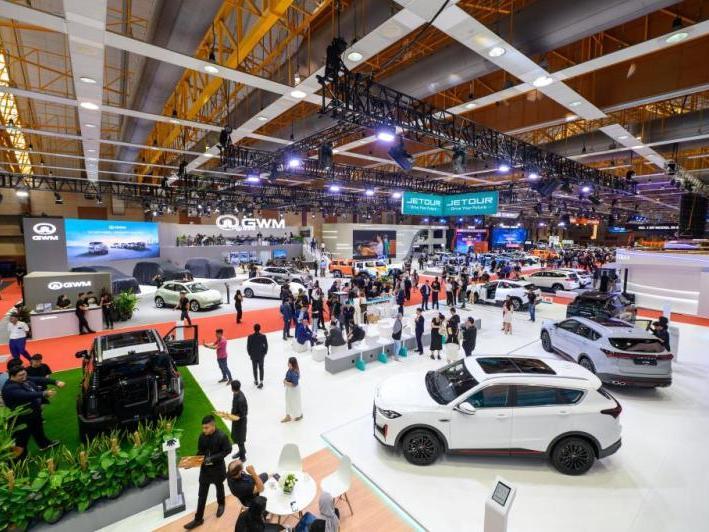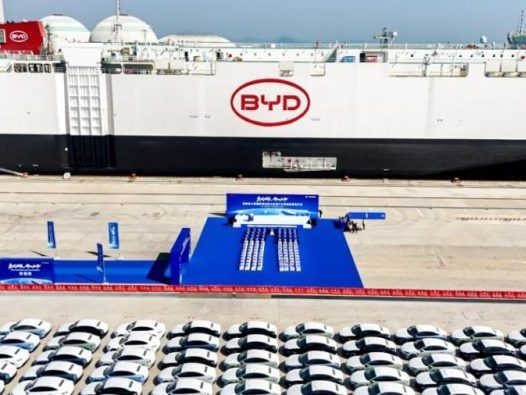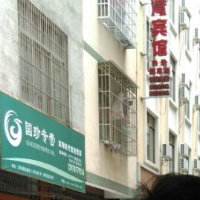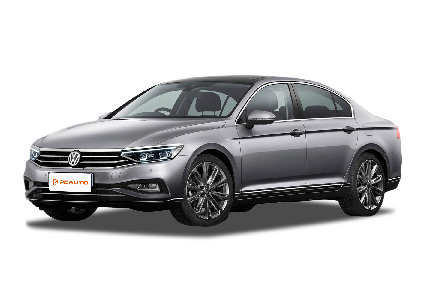Q
Is the Volkswagen Passat 2018 a good car?
The 2018 Volkswagen Passat has carved out a solid niche in Malaysia's midsize sedan market, earning plenty of love from families and business users alike for its comfy ride and practical, spacious layout. Under the hood, you're looking at either a 1.8TSI or 2.0TSI turbocharged engine – both deliver smooth power and decent fuel economy, making them equally at home in stop-and-go city traffic or stretching their legs on the highway.
Inside, the Passat sticks to VW's tried-and-true minimalist vibe, with solid materials and build quality that feels reassuring. The 8-inch touchscreen is a welcome addition, and the suite of driver assists – think adaptive cruise control and automatic emergency braking – adds a nice layer of safety. Crucially for Malaysia's tropical heat, the air-con system works a treat, and the cabin insulation does a good job of keeping outside noise at bay, so comfort levels stay high no matter the conditions.
Of course, like any car, regular maintenance is non-negotiable. The turbo system and electronics, in particular, need a little extra TLC to keep them reliable over time. If you're eyeing a used Passat, do yourself a favor and dig into the service records and mechanical condition – peace of mind is key for long-term ownership. All in all, the 2018 Passat hits that sweet spot of balance, making it a solid pick if you value practicality and comfort above all else.
Special Disclaimer: This content is published by users and does not represent the views or position of PCauto.
Related Q&A
Q
How much is a 2018 Passat worth trade-in?
The 2018 Volkswagen Passat typically holds a used car trade - in value between RM70,000 and RM120,000 in Malaysia. The exact figure hinges on factors like overall condition, mileage, trim level, and service history, higher - spec models such as the R - Line variant or those with lower mileage usually fetch higher prices. In Malaysia's used car market, demand for German mid - size sedans like the Passat remains steady, thanks to their solid reputation among local buyers for reliability and comfort. If you're looking to trade yours in, I'd recommend getting free valuations from official dealerships or reputable used car platforms first. And don't forget to keep those service records complete – they can really help boost your car's residual value. One thing to note: used car prices here are also influenced by new car promotions. If the Passat has been getting big discounts recently, it might temporarily drag down the second - hand market. From a mechanical perspective, the Passat's 1.8TSI and 2.0TSI engines hold up well in our tropical climate, but regular coolant and transmission fluid changes are essential. These little maintenance details directly affect what your car is worth in the end. For the most accurate trade - in quote, your best bet is to take the car to several certified used car dealers for on - site inspections and compare their offers.
Q
When to change the timing belt on a Passat?
Volkswagen Passat owners in Malaysia need to pay special attention to the timing belt replacement interval, especially considering how our hot and humid climate accelerates rubber component aging. According to the manufacturer's recommendations, Passat models equipped with 1.8T or 2.0T petrol engines should have the timing belt replaced once they hit 90,000 to 105,000 kilometers or after 5 to 6 years, whichever comes first. For diesel variants, due to higher operating loads, it's advisable to inspect the belt as early as 80,000 kilometers.
In practice, always replace the tensioner pulley and water pump simultaneously—water pump failures can cause coolant leaks that corrode the belt. Malaysia's damp conditions speed up belt cracking, so if you hear unusual squeaking from the engine bay or notice increased rough idling on cold starts, get it checked immediately.
It's worth noting that some newer Passat models have switched to maintenance-free timing chains, but most pre-2015 models still use belts. Owners can check their specific configuration by providing the VIN to an authorized service center. During regular servicing, have the belt inspected for cracks or missing teeth. If the vehicle sits unused for long periods, pay extra attention to belt elasticity—rubber components actually harden faster when stationary. For those who frequently drive in congested areas like Kuala Lumpur, the constant stop-start driving puts extra strain on the belt, so consider slightly shortening the replacement interval.
Q
What kind of engine is in the 2018 Passat?
For the Malaysian market, the 2018 Volkswagen Passat primarily offers two petrol engine options: the 1.8-litre TSI turbocharged engine and the 2.0-litre TSI turbocharged engine. The 1.8L TSI churns out a healthy 180 horsepower and 250 Nm of torque, while the 2.0L TSI ups the ante with a more robust 220 horsepower and 350 Nm. Both engines are paired with Volkswagen's DSG dual-clutch gearbox, delivering that smooth yet efficient driving feel we've come to expect.
For Malaysian buyers, turbocharged tech makes a lot of sense here – it handles our hot climate and varied road conditions pretty well, balancing decent power delivery with better fuel economy. It's worth noting that these TSI engines use direct fuel injection, which precisely controls fuel delivery to boost combustion efficiency. You'll find similar tech in rival Japanese or European models, of course, but each brand tunes things differently. Volkswagen tends to prioritize low-end torque, which is really handy for daily city driving.
If you're looking at used models or parallel imports, you might come across diesel TDI engines, though they're pretty rare finds in the Malaysian market.
Q
Which year is Passat best?
The Volkswagen Passat has always performed well in the Malaysian market, especially the B8 generation models introduced from 2015 to 2017, which have built up quite a solid reputation. This generation of Passat moved to the MQB platform, making the body lighter while improving handling. It also came packed with advanced driver assistance systems like adaptive cruise control and lane keeping – features that really suit Malaysia's long-distance driving needs. What's more, the 1.8TSI and 2.0TSI engines struck a nice balance between power and fuel efficiency, while the diesel TDI variant offered even more torque, perfect for those who frequently hit the highway. Inside, the B8 generation got a significant upgrade too, with a digital instrument cluster and a larger infotainment screen as standard, giving it a really tech-forward feel. Of course, the facelifted models from 2019 onwards further refined the front-end design and infotainment system, but they do come with a heftier price tag. If you're working with a tighter budget, the 2015-2017 used B8 models offer much better value for money. One thing to keep in mind though – Malaysia's hot and rainy climate can be tough on European car electronics. It's advisable to prioritize units with complete service records and to regularly check the electrical systems and cooling components.
Q
What is the fuel consumption of the 2018 Passat?
The 2018 Volkswagen Passat's fuel economy in the Malaysian market varies depending on the engine under the hood. The 1.8-liter TSI turbocharged petrol engine returns a combined fuel consumption figure of around 6.6 liters per 100 kilometers, while the more powerful 2.0-liter TSI variant edges up slightly to approximately 7.2 liters per 100 km. Of course, real-world numbers can fluctuate based on your driving style, the roads you tackle, and how well you keep up with maintenance.
Diesel fans, listen up – the 2.0-liter TDI diesel engine is the efficiency star here, with a combined fuel consumption as low as 4.8 liters per 100 km, making it a solid choice for those long highway cruises. It's worth highlighting that the Passat's direct fuel injection and DSG dual-clutch transmission work together to maximize fuel efficiency – tech that's pretty much standard fare in mid-to-premium sedans these days.
Malaysian drivers should also factor in local fuel quality and our climate when considering economy. Sticking to regular air filter replacements and using the recommended engine oil will go a long way in keeping those fuel consumption figures in check. If you're really chasing the ultimate in fuel sipping, keep an eye out for Volkswagen's plug-in hybrid Passat GTE, which offers extended all-electric driving with zero fuel consumption.
Q
How much is insurance for a 2018 Volkswagen Passat?
Insurance costs for the 2018 Volkswagen Passat in Malaysia can vary quite a bit depending on several factors, but you're generally looking at a range of around RM2,000 to RM5,000. The exact figure hinges on things like the car's market value, engine size—so whether it's the 1.8TSI or 2.0TSI—your age, driving history, and the type of coverage you go for, be it comprehensive or third-party only. On top of that, quotes can differ between insurers like Etiqa, Allianz, or Tune Protect, so your best bet is to check directly on their websites or use a comparison platform to get a precise number.
It's worth noting that car insurance in Malaysia typically comes with basic coverage: third-party liability, fire, and theft. But if you want extras like windscreen protection or natural disaster coverage, that'll bump up the premium. Being a German mid-size sedan, the Passat's higher parts costs can also play into insurance pricing. To keep costs down, consider increasing your voluntary excess (NCD) and regularly shop around for insurer promotions—like no-claim discounts or bundle deals. These little steps can help save on your long-term motoring expenses.
Q
Is a 2018 Volkswagen Passat a good car?
The 2018 Volkswagen Passat is a solid performer in Malaysia's midsize sedan segment, winning over families and business users alike with its comfortable ride, well-sorted chassis, and practical cabin layout. Under the hood, the 1.8-liter TSI turbo engine delivers plenty of pep while keeping fuel consumption in check – perfect for both Malaysian city commutes and longer highway stretches. Inside, it's classic Volkswagen simplicity, with materials and build quality that sit comfortably above average for the class. The infotainment and driver-assist features? They get the job done without fuss. Now, remember, like any used car, always dig into the service history and mechanical condition before buying. Pay extra attention to the gearbox and electronics to make sure everything's running smoothly. On the plus side, VW's after-sales network in Malaysia is pretty extensive, and parts availability is generally good – that's a big bonus for long-term ownership. If you're considering one, do yourself a favor and take it for a test drive to get a feel for how it actually drives. And hey, it wouldn't hurt to cross-shop with rivals like the Toyota Camry or Honda Accord to make sure you're getting the best fit for your needs.
Q
How reliable is the 2018 Passat?
The 2018 Volkswagen Passat has proven to be a generally reliable choice in the Malaysian market. Its tried-and-tested TSI turbocharged engine and DSG dual-clutch gearbox deliver smooth power and decent fuel efficiency, making it well-suited for both daily city commutes and longer highway drives here. Inside, there's plenty of space, and the suspension is tuned for comfort, handling Malaysia's varied road conditions capably.
You might encounter some minor niggles, though – things like occasional glitches with the electronics or a creaky sunroof. But staying on top of regular servicing and software updates usually keeps those issues in check. It's worth noting that maintenance costs for the Passat tend to be a bit higher than your average Japanese competitors in the same class. I'd recommend sticking with authorized VW service centers to ensure you're getting quality parts.
If you're looking at a used Passat, pay extra attention to how smoothly the gearbox shifts and check for any wear on the chassis rubber components. A complete service history is also a must-have when you're doing your due diligence.
Against its peers, the Passat still holds an edge when it comes to cabin quietness and high-speed stability. If your budget stretches that far, springing for a variant with the driver assistance package is a smart move – features like automatic emergency braking and adaptive cruise control really come in handy in Malaysia's often chaotic traffic.
Q
What is the price of VW Passat 2018?
If you're looking at a used 2018 Volkswagen Passat in Malaysia, prices typically range from around RM80,000 to RM120,000. It really depends on the condition, mileage, and trim level, though. The base 1.8 TSI models are usually on the lower end of that spectrum, while the top - spec 2.0 TSI or those with the R - Line package will fetch a higher price. This German midsizer is known for its solid chassis setup and efficient turbocharged engines. The 2018 model came equipped with an 8 - inch touchscreen and tri - zone climate control as standard, and some higher - spec versions even got adaptive cruise control and a digital instrument cluster. A piece of advice when buying a used car: always go through official certified channels or have a professional inspection conducted to check the vehicle's history. It's especially important to check the maintenance records of the DSG gearbox. Also, Malaysia's hot and humid weather can speed up the aging of rubber components, so a thorough inspection of the chassis bushings and weatherstripping is also crucial. If you're considering Japanese alternatives in the same class, it's worth checking out the used market for the Toyota Camry or Honda Accord. Different brands have their own pros and cons when it comes to maintenance costs and parts availability.
Q
What generation is the 2018 Passat?
The 2018 Volkswagen Passat falls under the eighth-generation model, codenamed B8. This generation first hit the scene back in 2014, got a minor refresh in 2016, and the 2018 version carried forward the B8's design and tech package. Styling-wise, it sports VW's signature horizontal chrome grille and sharper LED headlights. Inside, you'll find a digital instrument cluster and advanced driver assistance systems, giving the cabin an overall vibe that's equal parts business and tech-forward.
For the Malaysian market, the 2018 Passat typically came with engine choices like the 1.8 TSI or 2.0 TSI petrol units, with some variants likely packing the DSG dual-clutch gearbox – a combo that balances pep and fuel efficiency pretty well. Safety got a solid upgrade with the eighth-gen Passat too, featuring stuff like adaptive cruise control, lane keeping assist, and automatic emergency braking, all meeting major global safety standards.
It's worth noting that the Passat B8 is built on VW's MQB platform, which also underpins models like the Skoda Superb. This shared platform allows for tech resource sharing while still letting each brand keep its own distinct character. For Malaysian buyers, the Passat B8 stands out as a midsize sedan that nails both comfort and practicality, making it a solid pick whether you're using it for family duties or business trips.
Latest Q&A
Q
Does the 2019 Yaris have a backup camera?
The 2019 Toyota Yaris did come with a reverse camera in the Malaysian market. Back then, this feature was already becoming a standard fitment on most models, especially the mid-to-high spec variants. It displays a live feed of what's behind you on the infotainment screen, making reversing safer by helping drivers spot potential hazards and reducing blind spots.
Just a heads-up though, exact specs can vary between trim levels. If you're a Yaris owner, it's always best to check your owner's manual or give Toyota Malaysia a call to confirm if your specific model has this feature.
Reverse cameras are pretty much everywhere in modern cars these days. It's not just the Yaris – rivals like the Honda Jazz and Mazda 2 also offered similar safety tech, some even with dynamic guidelines or radar-based warning systems to make things even easier.
If you're looking at a used Yaris, do yourself a favor: test the reverse camera during your test drive. Make sure it works properly, and keep an eye out for any screen issues like fading or lag. That way, you can be sure this handy feature is in top shape and ready to help.
Q
What kind of engine is in the 2019 Toyota Yaris?
The 2019 Toyota Yaris in the Malaysian market primarily comes with a 1.5-liter 2NR-FE four-cylinder naturally aspirated petrol engine. This engine features Dual VVT-i (Dual Variable Valve Timing-intelligent) technology, churning out a maximum 107 horsepower and a peak torque of 140 Nm. It's mated to either a 7-speed CVT automatic or a 5-speed manual gearbox, delivering impressive fuel efficiency.
Renowned for its reliability and low maintenance costs, this engine is a solid fit for city commuting and also meets Malaysia's Euro 4 emission standards. It's worth noting that while naturally aspirated engines like this one might not deliver the same punch as turbocharged units, their simpler construction translates to better durability and lower upkeep expenses – a big plus given Malaysia's road conditions and climate. Toyota has also done a decent job with sound insulation on this engine, so noise levels are nicely controlled, especially at lower speeds.
If straight-line speed is your top priority, you might want to check out some other models in this segment. But when it comes to overall value for money, this 1.5L Yaris is a strong contender and remains a popular pick in the small car market.
Q
How long does a 2019 Toyota Yaris last?
The 2019 Toyota Yaris typically clocks up 150,000 to 200,000 kilometers or more on Malaysian roads, with its lifespan heavily relying on how well you maintain it and your driving style. This little workhorse is known for being tough as nails and rarely letting you down – it’s practically tailor-made for Malaysia’s city traffic and weather. Sticking to regular oil changes, keeping the cooling system spotless, and swapping out the timing belt when it’s due can really stretch its service life. Toyota’s got a solid after-sales network here, and genuine parts are easy to come by, which is a big plus for keeping it running long-term.
One thing to watch out for though – Malaysia’s hot and humid climate can be rough on rubber components and electrical bits. I’d recommend checking the chassis rubber parts and wiring insulation every couple of years to be safe. When it comes to holding value, the Yaris does pretty well in the used car market here; a five-year-old model usually still retains around 60% of its original price. If you’re mainly using it for city commuting and keep up with maintenance, there’s no reason it can’t last over 10 years without major repairs.
For Malaysian buyers on a budget looking at a used Yaris, pay extra attention to the transmission fluid change history and the condition of the air conditioning system – those are the usual trouble spots in our tropical weather.
Q
What is the 2019 Yaris known for?
The 2019 Toyota Yaris made a name for itself in Malaysia thanks to its solid reputation for reliability and fuel efficiency. This little hatchback packs a 1.5-liter Dual VVT-i engine under the hood, churning out 107 horsepower and 140 Nm of torque. Paired with a CVT gearbox, it’s a real fuel sipper – perfect for zipping around the city.
Safety-wise, it doesn’t skimp either. Standard kit includes VSC (Vehicle Stability Control), HAC (Hill-Start Assist Control), and a full complement of 7 airbags, which is reassuring. Its compact size – 4,140mm long – makes it a breeze to maneuver through tight city streets and squeeze into those tricky parking spots. The 2019 model also got a subtle style upgrade with LED daytime running lights and a chrome grille, giving it a slightly more modern look.
Here’s a testament to its toughness: you’ll often spot Yaris models serving as ride-hailing cars or taxis around Southeast Asia. That tells you something about how durable they are. If you’re shopping around in this segment, the Honda Jazz or Nissan Almera are worth a look too – both are pretty thrifty on fuel. But where the Yaris really shines is Toyota’s after-sales network in Malaysia. It’s one of the most extensive out there, which means getting it serviced or repaired is a whole lot more convenient. That’s a big plus in my book.
Q
Is the 2019 Yaris easy to park?
The 2019 Toyota Yaris is a solid pick for city driving in Malaysia. Its compact size and nimble handling make parking a breeze—at under 4 meters long with a tight turning radius, it weaves through tight parking lots and congested streets without breaking a sweat. Owners often praise the good visibility, and when paired with the mirrors and reverse sensors (some higher trims might even get a reverse camera), it’s a total lifesaver for parking, especially if you’re new to driving.
Think about it: if you’re regularly navigating cities like KL, a small car like the Yaris takes a lot of the stress out of parking. Malaysia’s older urban areas are full of those tiny, cramped parking spots, and a shorter car definitely has an easier time squeezing into them. Plus, the electric power steering makes the wheel feel super light when you’re inching around at low speeds.
But here’s the thing—while small cars rock for parking, they might not feel as planted as bigger vehicles when you’re cruising at highway speeds. So, just make sure to factor in your own driving style and what you really need before deciding.
View MoreRelated News

Because of lack of funds to upgrade the factory, Volkswagen postponed the release of ID.Golf and ID.Roc
JamesSep 17, 2025

Volkswagen Locks Vehicle Horsepower, Unlocks Full Power via Subscription
JohnAug 19, 2025

Summarizing the 2025 Malaysia Auto Show, a large number of new cars were launched in Malaysia this year.
MichaelMay 12, 2025

Volkswagen ID.Buzz's Bizarre Recall: Third-Row Seats Too Wide, Need to Be Modified
Kevin WongMay 8, 2025

BYD Sets Global Sales Target of 5.5 Million Units for 2025
RobertMar 26, 2025
View More


















Pros
Cons